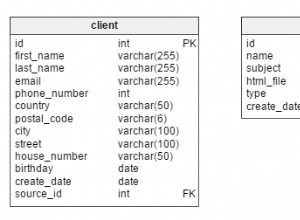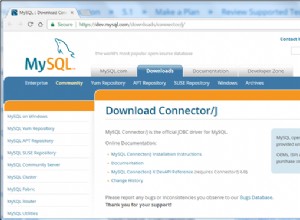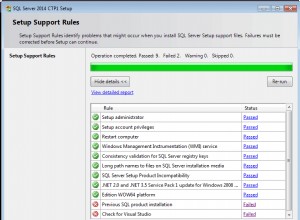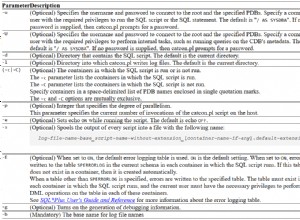Gemäß der Dokumentation
Alle eindeutigen Tabellennamen-Indizes, die unabhängig von der Reihenfolge genau die durch Konflikt_Ziel angegebenen Spalten/Ausdrücke enthalten, werden als Arbiter-Indizes abgeleitet (ausgewählt). Wenn ein index_predicate angegeben ist, muss es als weitere Voraussetzung für die Inferenz Arbiter-Indizes erfüllen.
Die Dokumente sagen weiter:
[index_predicate werden verwendet, um Rückschlüsse auf teilweise eindeutige Indizes zu ermöglichen
Untertrieben sagen die Dokumente, dass bei der Verwendung eines partiellen Indexes und beim Upserting mit ON CONFLICT das index_predicate angegeben werden muss . Es wird für Sie nicht abgeleitet. Ich habe das hier gelernt, und das folgende Beispiel demonstriert dies.
CREATE TABLE test.accounts (
id int PRIMARY KEY GENERATED BY DEFAULT AS IDENTITY,
type text,
person_id int);
CREATE UNIQUE INDEX accounts_note_idx on accounts (type, person_id) WHERE ((type)::text = 'PersonAccount'::text);
INSERT INTO test.accounts (type, person_id) VALUES ('PersonAccount', 10);
so dass wir haben:
unutbu=# select * from test.accounts;
+----+---------------+-----------+
| id | type | person_id |
+----+---------------+-----------+
| 1 | PersonAccount | 10 |
+----+---------------+-----------+
(1 row)
Ohne index_predicate wir bekommen einen Fehler:
INSERT INTO test.accounts (type, person_id) VALUES ('PersonAccount', 10) ON CONFLICT (type, person_id) DO NOTHING;
-- ERROR: there is no unique or exclusion constraint matching the ON CONFLICT specification
Aber wenn Sie stattdessen das index_predicate einfügen, WHERE ((type)::text = 'PersonAccount'::text) :
INSERT INTO test.accounts (type, person_id) VALUES ('PersonAccount', 10)
ON CONFLICT (type, person_id)
WHERE ((type)::text = 'PersonAccount'::text) DO NOTHING;
dann gibt es keinen Fehler und DO NOTHING wird berücksichtigt.




